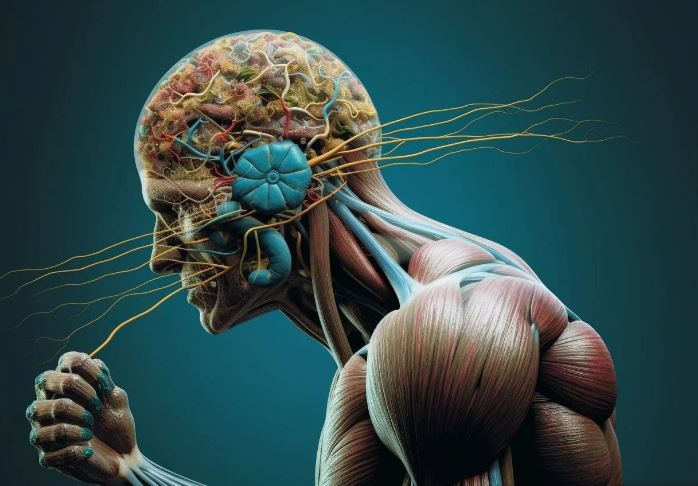


 5:40:24
5:40:24  2024-01-04
2024-01-04  933
933

The list of health benefits that come along with regular exercise may have grown with a new study uncovering a link between staying active and the size of parts of the brain responsible for memory and learning capabilities.
Even better, the exercise doesn't have to be overly intense or prolonged to have brain boosting effects, according to the experts behind the study. The team included researchers from the Pacific Neuroscience Institute Brain Health Center (PBHC) at Providence Saint John's Health Center and Washington University in St. Louis.
The study looked at magnetic resonance imaging (MRI) brain scans of 10,125 people, finding those who said they regularly engaged in some kind of physical activity – like walking, running, or sports – had larger brain volumes in specific areas.
Those areas included the 'decision making' frontal lobe and the hippocampus – a part of the brain that's important in how memories are stored and handled. The study also measured the total volume of each brain's gray matter, which helps the brain process information, the its connective white matter.
"We found that even moderate levels of physical activity, such as taking fewer than 4,000 steps a day, can have a positive effect on brain health," says psychiatrist and neuroscientist David Merrill from the PBHC.
"This is much less than the often-suggested 10,000 steps, making it a more achievable goal for many people."
While brain volume doesn't automatically indicate improved functionality, it's often taken as a fair indicator of changes in cognitive abilities.
This study doesn't go into detail in terms of how these brain boosts might manifest themselves in people who exercise regularly, but we know what these regions are responsible for, so memory and learning may well be enhanced.
There are numerous reasons why regular activity might boost neurological functions, including the way that exercise improves blood flow around the body (including to the brain), and increases the levels of certain proteins that keep neurons healthy.
And this of course becomes more important the older we get, as the likelihood of developing neurodegenerative diseases increases. It's thought that bigger brain volumes can help can help delay the cognitive decline that comes that comes along with conditions such as Alzheimer's, for example.
Previous studies have also found an association between higher levels of activity and a lower risk of dementia. They're not enough to prove direct cause and effect, but there does seem to be some kind of relationship here.
The researchers want to see more done to raise awareness of the benefits of exercising, and carrying on exercising in later life. Even if you don't feel able to hit 10,000 steps a day, your body and brain are still benefiting from the activity.
"Our research supports earlier studies that show being physically active is good for your brain," says radiologist Cyrus Raji from Washington University in St. Louis.
"Exercise not only lowers the risk of dementia but also helps in maintaining brain size, which is crucial as we age."
Reality Of Islam |
|

New scienti

This is the

A computer

Auburn Univ
 9:3:43
9:3:43
 2018-11-05
2018-11-05
10 benefits of Marriage in Islam
 7:5:22
7:5:22
 2019-04-08
2019-04-08
benefits of reciting surat yunus, hud &
 9:45:7
9:45:7
 2018-12-24
2018-12-24
advantages & disadvantages of divorce
 11:35:12
11:35:12
 2018-06-10
2018-06-10
 6:0:51
6:0:51
 2018-10-16
2018-10-16
 7:26:19
7:26:19
 2022-04-08
2022-04-08
 1:16:44
1:16:44
 2018-05-14
2018-05-14
allah will not answer all your prayers
 6:56:28
6:56:28
 2022-01-01
2022-01-01
 3:42:22
3:42:22
 2021-12-24
2021-12-24
a hero waters thirsty wild animals
 9:4:9
9:4:9
 2022-01-06
2022-01-06
 2:11:12
2:11:12
 2022-10-15
2022-10-15
 7:34:7
7:34:7
 2023-02-28
2023-02-28
 5:41:46
5:41:46
 2023-03-18
2023-03-18
| LATEST |